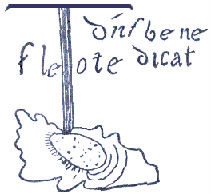Peace and Good! These are two saints who amaze me, as much for what they didn’t do as what they did. They both had reason to walk another path, and yet both heeded the Gospel and walked in the way of the Lord, though in very different circumstances and places.
Martin de Porres had every reason to be a bitter man. He was treated badly by his father, looked down upon as someone illegitimate and of mixed race. When he joined the Dominicans he was kept for several years from becoming a full member because of prejudice. Yet, rather than becoming a bitter man consumed by anger, he used these circumstances to open his heart in compassion to others and obedience to God’s grace. He like Francis, was known to extend his kindness even to the smallest creatures, feeding the mice who plagued the priory rather than killing them. I think of the story of Francis telling someone who was bitter against injustices done against him that such bitterness would only bring about the only true loss, loss of his soul. Martin, by God’s grace, shows us that such bitterness is not the only way to cope with life’s disappointments and unfairness.
Charles Borromeo had the opposite. His was a life of privilege and wealth, full of palaces and power. He was related to the Medici family, and had relatives who were cardinals and even popes. This brought him position and privilege. He could have forgotten all about God and the good of others and put his energy into the politics of that era, both secular and ecclesiastical, and done quite well. But, again by the grace of God, he did not see what he had as being something he should use for himself, but that he should give himself to the love of God and others. He became a model archbishop and true Christian pastor. He used his gifts for others and thus turned worldly advantage into true discipleship.
Both these saints show us that there is no limit to what God can do, nor any particular type of person who can be a saint. Francis told us never to despise or look down on others. I think it was because he knew how powerful the grace of God could be, and how God often chooses the most unlikely instruments. He felt that he himself was an example of this, and he was right. Who would have thought that the party boy, spoiled son of a merchant, would ever amount to anything in the sight of God.
Francis, Charles, Martin: pray for us, that we too may emerge from whatever we’ve experienced in life, that with the grace of God we may be His instruments, his saints.
God bless!

